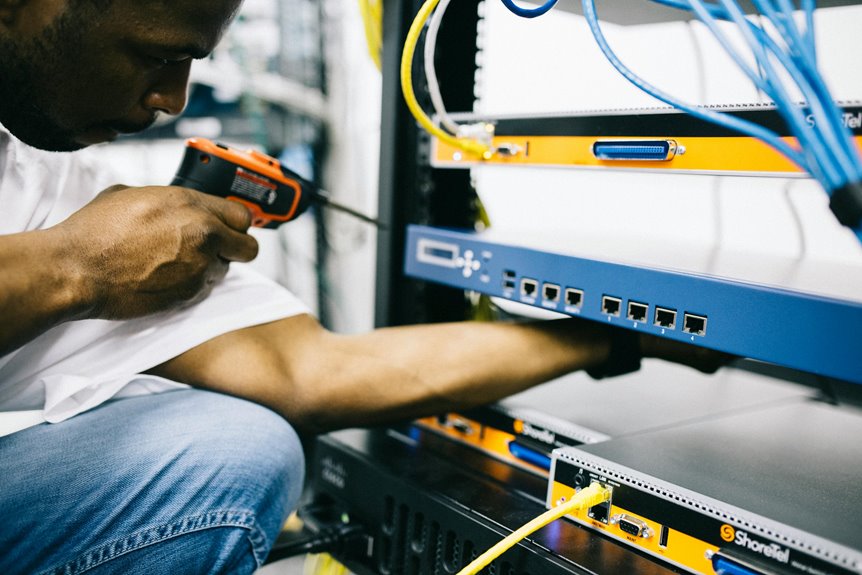In the hospitality industry, network vulnerabilities are like cracks in a dam—small at first, but capable of catastrophic failure. As you navigate the complex landscape of hotel security, you’ll encounter various cyber threats that can compromise guest privacy. Understanding these risks is essential for safeguarding sensitive information. What measures can you implement to fortify your defenses and ensure a secure environment for both staff and guests?
Understanding the Network Vulnerabilities in Hotels
While you may expect your hotel’s network to be secure, understanding the vulnerabilities present in these environments is crucial for protecting your data.
Hotel infrastructure often relies on outdated systems, leaving you exposed to data breaches. Unsecured Wi-Fi networks, inadequate encryption, and lack of proper access controls can all compromise your personal information.
Recognizing these risks empowers you to take proactive measures for enhanced security.
Common Cyber Threats Facing the Hospitality Industry
As cyber threats continue to evolve, the hospitality industry faces unique challenges that can severely impact both businesses and guests.
You must be vigilant against data breaches, phishing attacks, and ransomware threats. Insider threats exploit unsecured networks, while payment fraud targets financial transactions.
Understanding these common cyber threats is essential to protect your organization and ensure a safe environment for your patrons.
Essential Contacts for Network Security Issues
To effectively manage network security issues, establishing a clear chain of essential contacts is crucial.
Your contact management system should include IT personnel, cybersecurity experts, and incident response teams. These individuals will ensure swift communication during a breach, minimizing damage and enabling effective resolution.
Prioritizing these contacts not only safeguards your network but also empowers your organization to maintain operational freedom amid growing cyber threats.
Best Practices for Enhancing Guest Privacy and Security
Establishing a network of reliable contacts for security issues lays the groundwork for addressing guest privacy and security effectively.
Implementing robust security protocols is essential for protecting guest data. Regularly train your staff on these protocols, conduct vulnerability assessments, and utilize encryption methods.
Conclusion
In the hospitality industry, “an ounce of prevention is worth a pound of cure.” By recognizing network vulnerabilities and staying ahead of common cyber threats, you can protect your guests’ sensitive information. Establishing clear communication channels and implementing best practices for security not only safeguards your operations but also builds trust with your clientele. Prioritizing robust cybersecurity measures today will help you avoid costly breaches and ensure a secure, enjoyable experience for all guests.











